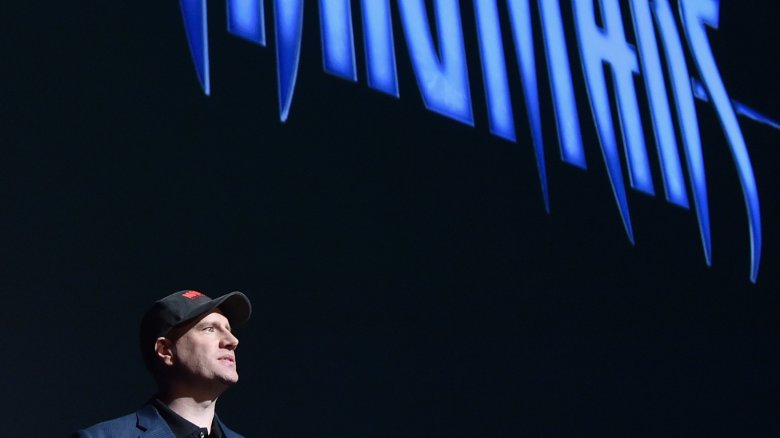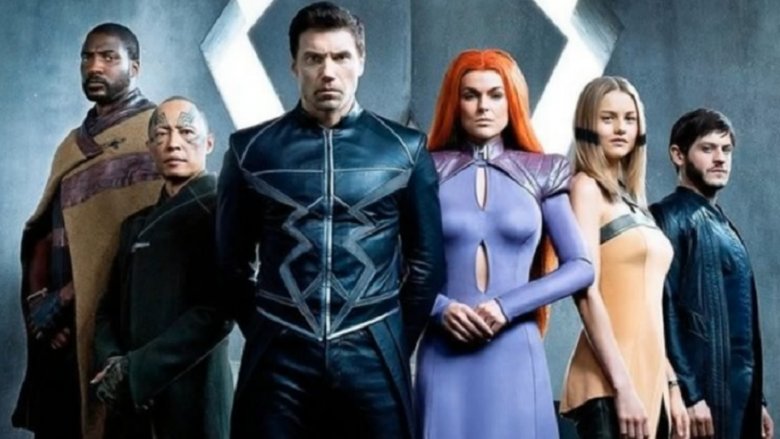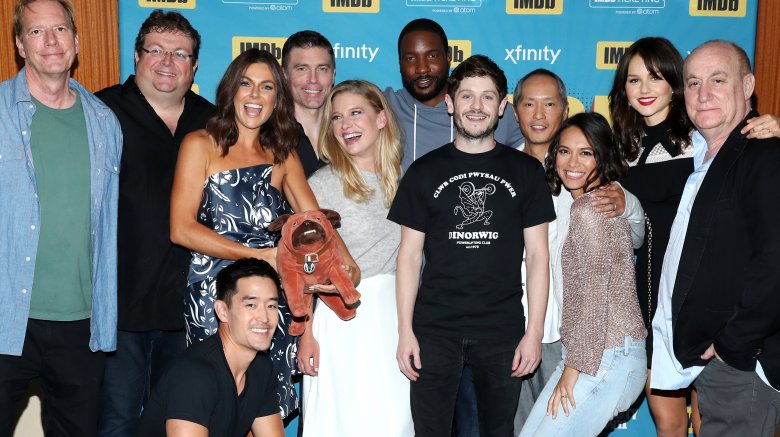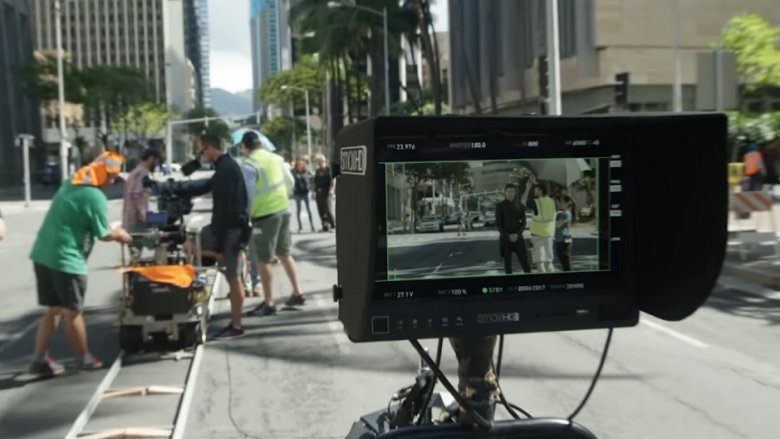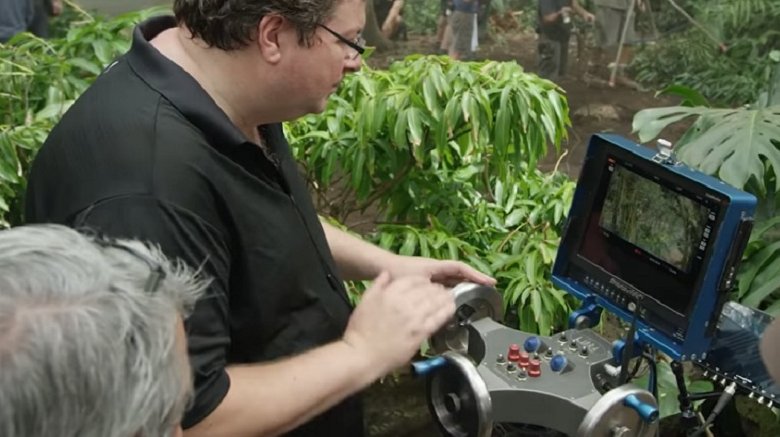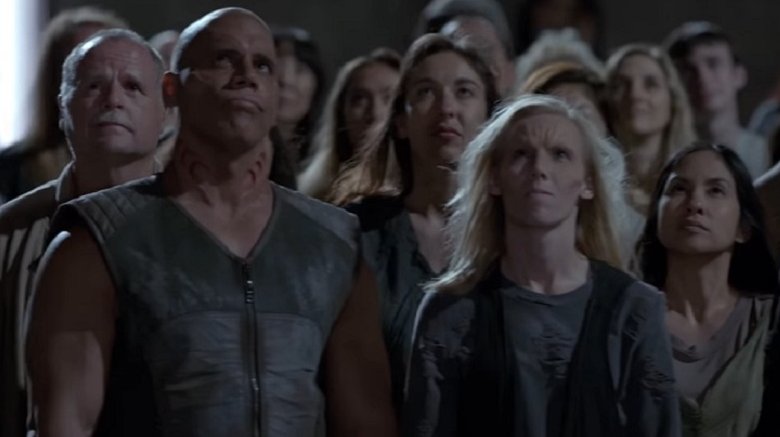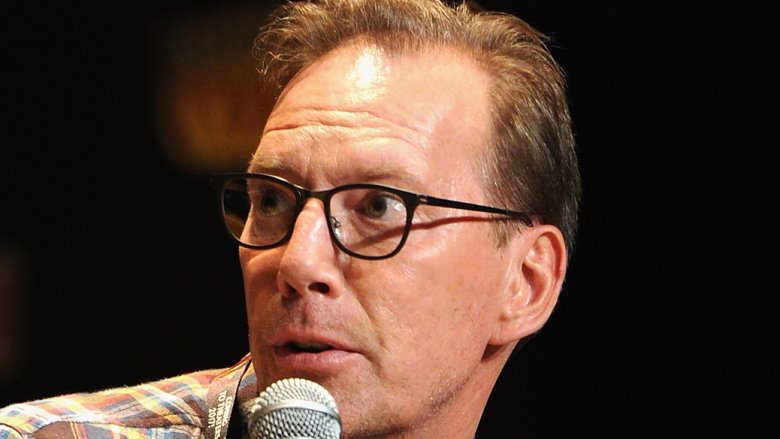Why Marvel's Inhumans Was Such A Flop
Marvel's ABC TV series Inhumans has made its long awaited debut, with a modified version of the first two episodes receiving a limited release in IMAX theaters nationwide. Unfortunately, the reaction from critics and fans has not been kind. The theatrical release currently has yet to earn a single positive review on Rotten Tomatoes, the box office take has been anemic, and fans have been left wondering how a project that spent such a long time in development is turning out to be Marvel's first massive flop.
There are several factors that brought Inhumans to this point, factors which Marvel Studios would do well to consider if they want to avoid another expensive and embarrassing debacle in the future.
Early production was... troubled
Inhumans was first announced in 2014, as part of Marvel Studios' slate of upcoming theatrical releases, and it was intended at that time to be included in Phase Three (the current one) with a 2019 release date. The Inhuman Royal Family were never the most high-profile of Marvel's stable of characters, but at the time of the announcement, the studio was coming off the surprise smash hit Guardians of the Galaxy, featuring an ensemble of characters whose profiles had previously been even lower. There seemed to be no reason for concern—until April 2016, when the project was pulled from Marvel's schedule.
Marvel Studios head honcho Kevin Feige explained at the time that room had to be made to squeeze in solo vehicles for Spider-Man, who had recently joined the MCU in a blockbuster deal with rights holder Sony Pictures, and a sequel to the unexpectedly huge hit Ant-Man. He expressed confidence that the Inhumans film was just "shuffle(d) off the current date," and implied that it would reappear on the schedule once the dust settled—which made it even more confusing for fans when the project was announced as an ABC television series just seven months later.
Throughout this time, rumors had persisted that the project was in constant danger of being scrapped altogether, and many fans were surprised when casting announcements soon began to be made—and then disappointed, once teaser images started to hit the web.
The first teaser images looked like bad cosplay
The Inhuman Royal Family are among the most colorful and outlandish characters in Marvel Comics. From Medusa's swirling, deadly red locks to Gorgon's The Thing-meets-the-Minotaur aesthetic to fish-man Triton, the series' visual design called for Guardians-level artistic flair—and when the first teaser images of the cast in costume were presented by Entertainment Weekly, it quickly became apparent that we were not going to get that.
Fans were not kind, taking to Twitter to complain about the flat color scheme and cheap look of the costumes, which a few even compared to bad, hastily thrown-together cosplay. Medusa in particular was singled out, as her defining feature—that killer hair, which is supposed to be able to batter or ensnare opponents—was barely visible, not to mention obviously a terrible wig.
By now, fans had learned that the first two episodes would be previewed in IMAX, and the bargain-basement feel of the crucial first promotional image didn't do anything to increase their anticipation of the visual spectacle.
The trailers were terrible
Those who decided to reserve judgment until the release of actual footage weren't given much hope when the first trailer debuted in late June. Despite an appearance by the teleporting, car-sized family dog Lockjaw getting a positive response, pretty much every other aspect of the trailer was widely criticized, from acting to set design to wardrobe. Medusa again underwhelmed as fans got not even a tease of what her hair could do, and some even began to wonder if her abilities had been retconned—but the second trailer removed this worry, while adding a whole new one.
A preview at San Diego Comic-Con had fans once again taking to Twitter to deride the new footage as "aggressively awful," and when the trailer hit the internet, we got to see exactly what they meant. In two brief shots, Medusa's hair is seen finally springing to life—employing some of the worst CGI effects this side of a ten year-old SyFy movie. A third, shorter trailer plugged in a few more shots of Medusa that only reinforced the notion that when she is at rest, her hair is stiff as a board, while in combat it is a ridiculous CGI mess. While the trailers were failing to generate even an ounce of excitement, the cast was not helping matters in their promotional efforts.
An awkward panel at a press event didn't help
On August 6, less than a month before the release of the IMAX presentation, ABC TV held its annual press event with the Television Critics' Association. When the cast of Inhumans was brought out to take questions from the assembled journalists, it became quickly apparent that they may not have been ready to field question after question about the poor internet reaction to the trailers and the show's perceived lack of quality.
Said journalists had plenty to say on social media after the event, with one tweeting that star Anson Mount had responded to the umpteenth question about the show's poor reception by saying, "You're making me feel like Ben Affleck right now," a reference to the Sad Affleck meme that popped up after fans and critics trashed Batman V. Superman: Dawn of Justice. Others commented that the entire tone of the event was evasive, deflective, and somewhat bewildered, with Marvel TV chief Jeph Loeb snapping at reporters in response to perfectly legitimate questions, and even shutting the event down early.
Of course, even setting aside the public lambasting of every piece of promotional material produced for the series thus far, there may have been a different reason why cast and crew were a bit on edge.
The production schedule was impossible, and micromanaged
The announcement that Inhumans was making the jump to television came in November 2016, meaning that producers basically had ten months to cast, write, and produce an eight-episode miniseries based on a property that had already had a troubled development by Marvel's standards. But to make matters worse, the IMAX premiere of the first two episodes meant that those episodes would have to be produced on an extremely accelerated schedule—a mere 20 days, a ridiculously short amount of time for a project intended to be so grand in scale.
Those episodes' director, Roel Reine, also told CNET that although the process was "collaborative," there was "always a Marvel executive around me just to make sure that whatever I did, or whatever we did together, would tie in with other characters in other universes, in other comics, in other series or movies. They're very protective."
The rushed nature of the production is apparent in the finished product, and the fact that some scenes are gorgeously shot in IMAX actually hurts rather than helps.
The IMAX experiment didn't work
Critics have pointed out that the scenes that are shot in IMAX—many of which are simply establishing shots—look fantastic, which simply serves to point out that everything that isn't shot in IMAX looks awful. The interiors and costumes have every bit the low-budget aesthetic suggested by the trailers, flaws that are only magnified up on that gigantic screen, with the gorgeous IMAX footage occasionally popping in to make the rest of the film look even worse by comparison.
Perhaps the IMAX experiment would have worked better had it been tied to a different property, one with more visual flair and/or an already-established fan base—but as it stands, the ambitious experiment can't be seen as anything but a failure.
In the first week of a planned two-week run, Inhumans grossed about $1.5 million on 393 North American screens, an absolutely paltry total considering the heavy promotion and the Marvel name. While an investment by IMAX will make Inhumans profitable for Disney no matter what happens, it's not exactly encouraging for partnerships of this kind in the future. As one media analyst told Variety, "The fact that they really didn't do that well for IMAX doesn't bode well for other networks copying this strategy."
The preview episodes were just really, really bad
Unfortunately, the look of the series is far from its only problem. According to every critic who has of yet had anything to say about Inhumans, the trailers didn't lie: every aspect of the production is an utter mess. From acting to direction to set design to special effects, there's plenty of blame to go around—but many have singled out the writing, calling the narrative structure uninspired and the dialogue atrocious.
Some have gone so far as to call it the worst thing Marvel has ever done, an insult to fans for which the beloved studio should be ashamed. It has to be a tough pill to swallow for Marvel TV executives, especially coming so quickly on the heels of the Netflix series Iron Fist, a similarly shoddy production that was nearly universally disparaged by critics and fans when it premiered earlier this year.
But there were important lessons in Iron Fist's failure that Marvel TV obviously failed to learn—and in particular, one common thread between the two projects that is at the very heart of what went wrong with Inhumans.
The wrong showrunner was given the reins
Shortly before the March 2017 release of Iron Fist, it was announced that the series' showrunner Scott Buck would also be given the keys to Inhumans. Fans were excited, as they did not yet have any reason to believe that Iron Fist would fall short of the lofty expectations set by previous Netflix series, and largely took the news as an indication that Inhumans was in good hands.
But when Iron Fist was released, it revealed itself to be astonishingly poor—plagued with terrible writing, plot holes, limp action sequences, and a miscast and unlikable lead. Immediately, fan expectations began to plummet for Inhumans even before the underwhelming marketing campaign came into play. Everything that has happened since has only confirmed what most observers strongly suspected: that Buck never should have been let near one Marvel property, let alone two.
Both of his efforts share similar glaring flaws—they're rushed in conception and execution, poorly written and plotted, and indifferently staged and photographed. Whether or not the failure of Inhumans is part of any trend of declining quality among Marvel TV productions is up for debate, but one thing should be plain: Scott Buck should not get a third chance to screw up an awesome property.
